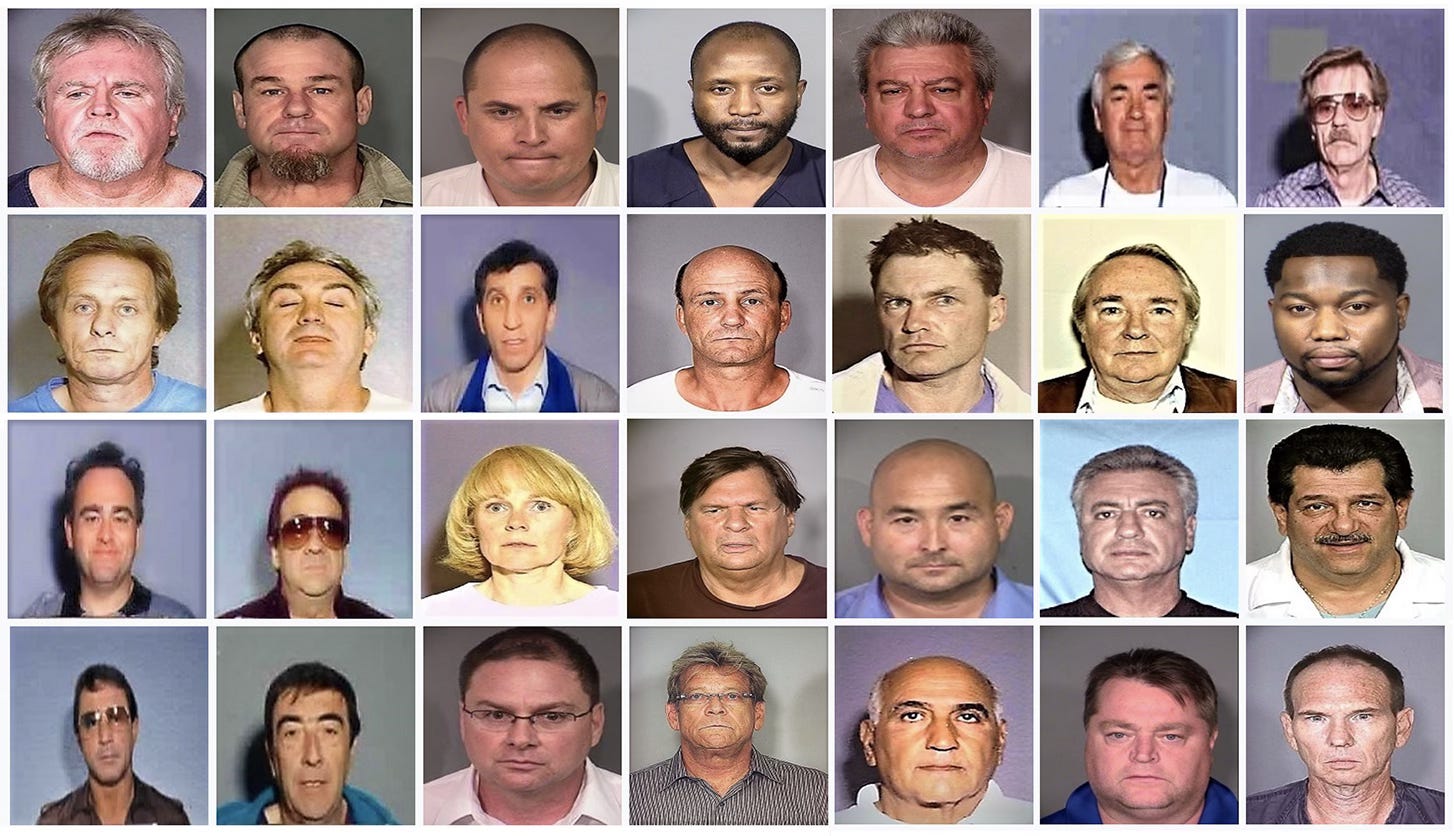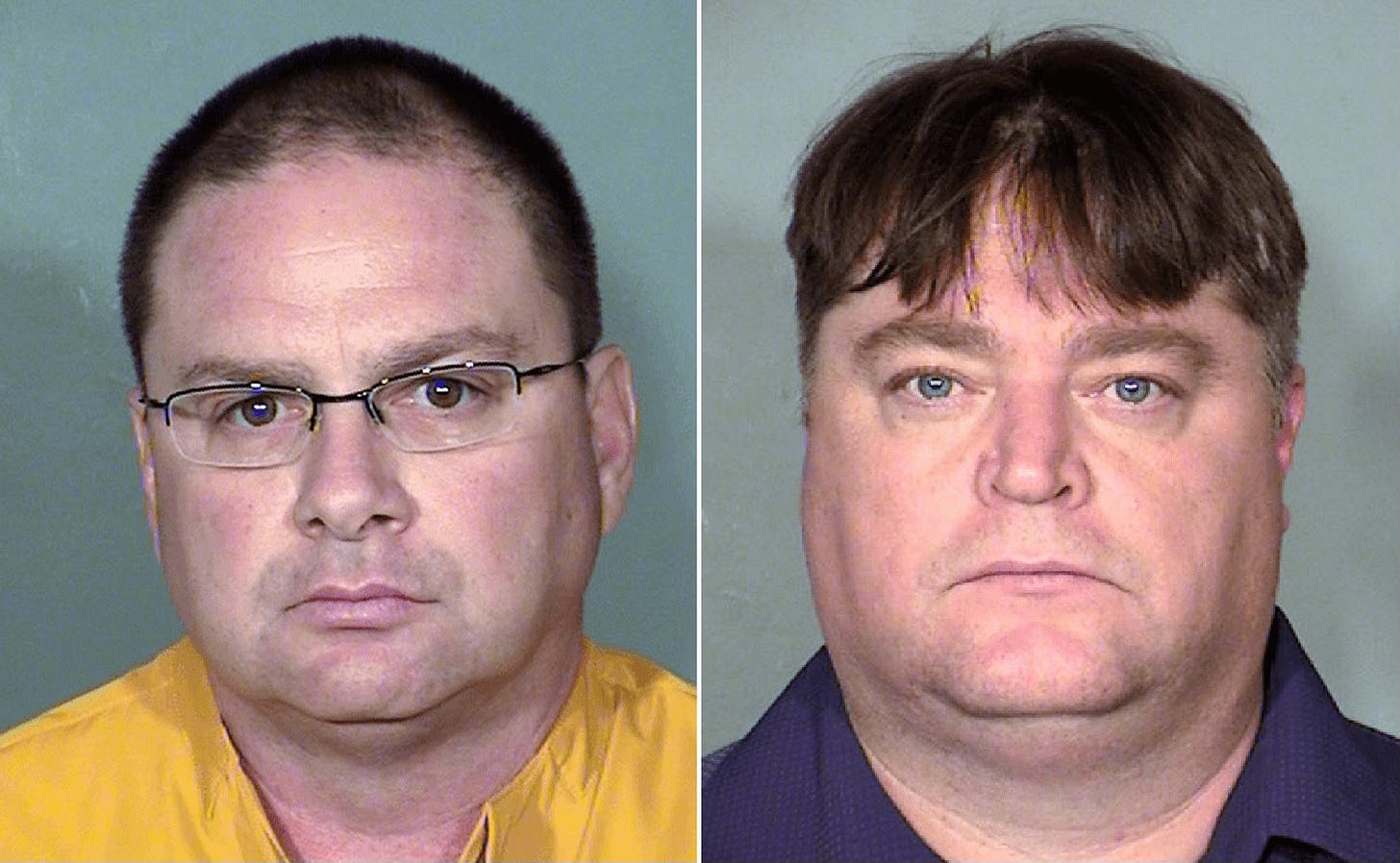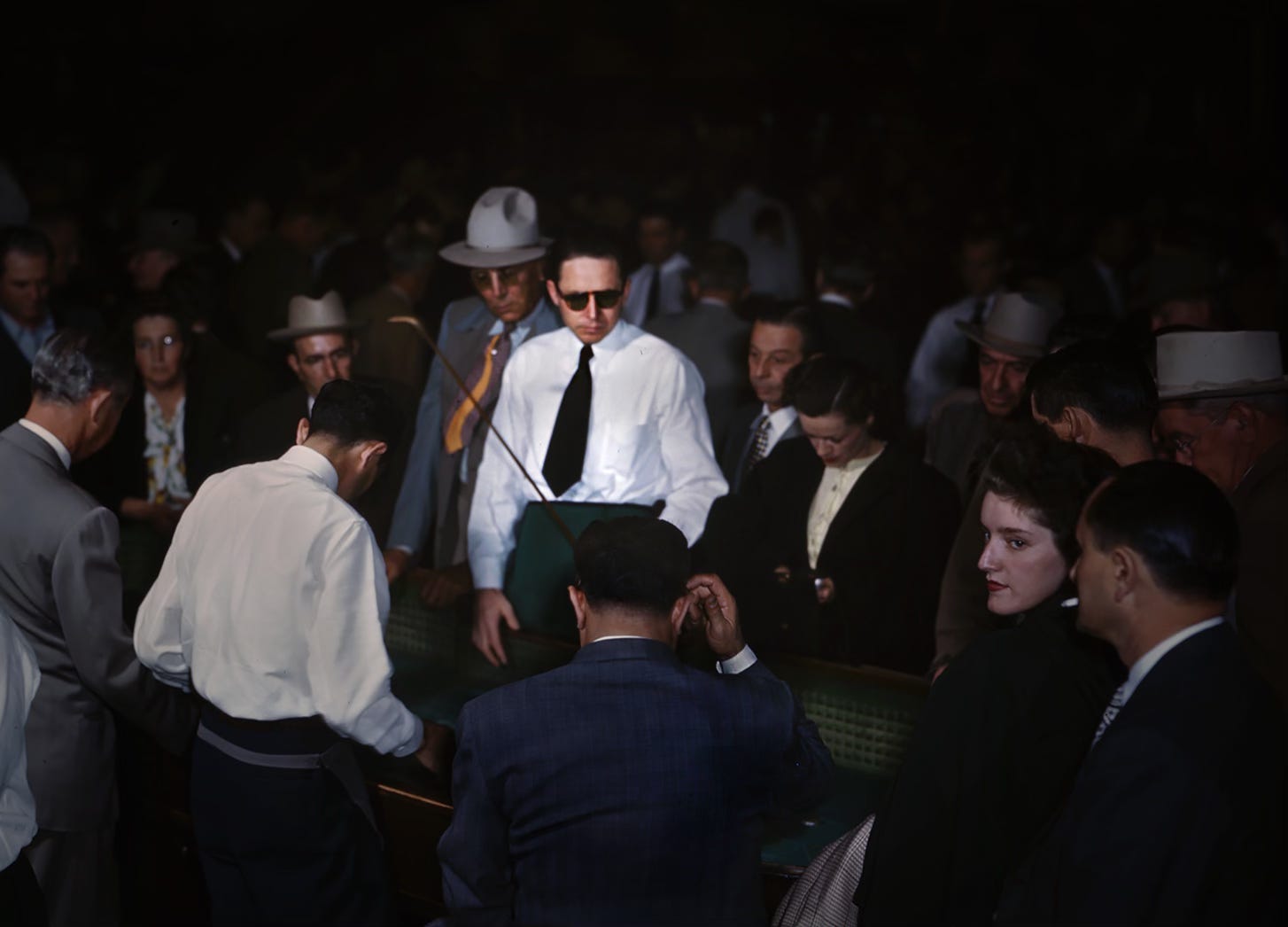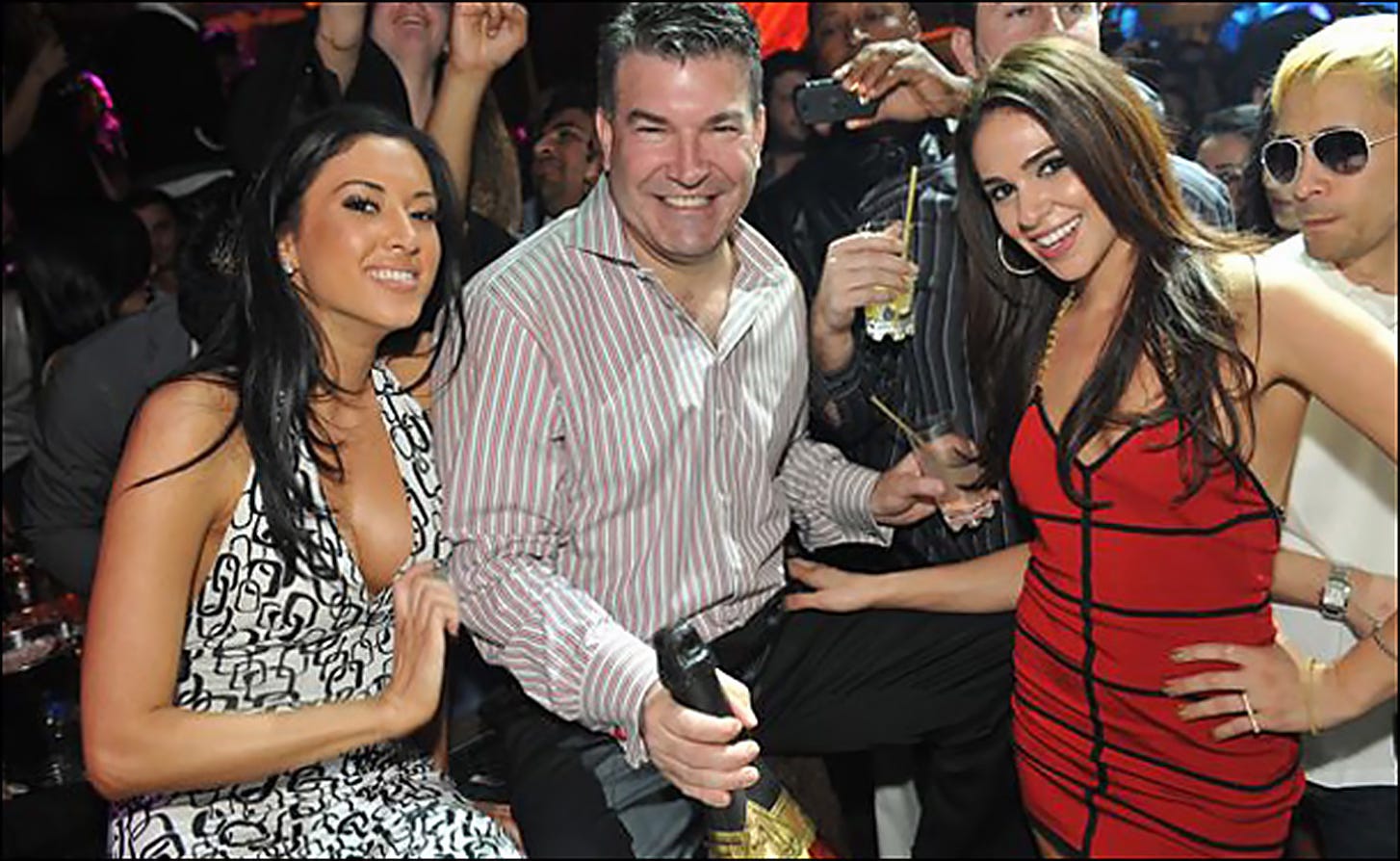The Grift and How It’s Done
In any casino, anywhere in the world, the number one operational concern are the cheaters. In this unique cash business where the odds are front loaded in the casino’s favor, there will always be grifters and hustlers looking for methods to tip the scales their way.
In the words of Sam “Ace” Rothstein:
In Vegas, everybody's gotta watch everybody else. Since the players are looking to beat the casino, the dealers are watching the players. The box men are watching the dealers. The floor men are watching the box men. The pit bosses are watching the floor men. The shift bosses are watching the pit bosses. The casino manager is watching the shift bosses. I'm watching the casino manager. And the eye-in-the-sky is watching us all.
As Mr. Rothstein so famously said, the threat is not just limited to the players. Indeed, some of the biggest scams have been perpetuated by the employees themselves. In 2016, two craps dealers from the Bellagio were charged in a 60-count indictment for cheating the house out of $1.2M over a two-year period from 2012-2014. While these two fellows were working their dual dealer positions at the table, an accomplice would arrive and start to wager large sums. Throughout the course of his session, the player would occasionally call out a late bet and put some chips in play just as the dice were being rolled at the crowded table. To add to the confusion, he would mumble out what’s known as a hop bet - a one roll bet that wagers on the chance that the dice would add up to a specific number. “Dealer…Nine on the hop” he’d say quietly as he set his chips down. Problem was, hop bets aren’t marked anywhere on the felt, they’re verbal bets which aren’t easily tracked. Now, if the accomplice happened to win the bet, he’d of course be paid by the crooked dealers. But if he didn’t, they would pretend that they hadn’t heard him and push his chips back. The eye in the sky couldn’t track what the hell was going on because the bets had no designated spot on the felt to be placed and marked. And what made it even harder for surveillance was the fact that this player was also losing on a lot of his normal bets. For instance, on one day in July of 2014 the player lost $64,000 on marked, valid bets - but won close to $150,000 on his verbal ones.
This went on for a total of 76 separate sessions. By the time that the Bellagio surveillance team painstakingly pieced together all of their footage, they found one particular sequence of bets that their math guy figured had odds of 452 billion to one to win. Out came the handcuffs and a free ride in a police car. This gang of cheats wisely took plea deals and then went on to serve their time. But, surprise! In 2018 the Nevada Gaming Commission placed two of them in the Black Book, as entry numbers 33 and 34. Officially named “The List of Excluded Persons”, the Black Book was launched in 1960 with the names of 11 reputed Mob figures. Individuals placed in the book are banned from ever entering any gaming establishment in Nevada. Originally designed as a public relations ploy to show that Mob characters did not in fact have influence over casinos, its legality has been challenged in high courts as a violation of due process, and moreover, has been accused of fostering selective prosecution of an ethnic group: Italian Americans.
By the 1980’s the Black Book changed somewhat; it went from featuring mobsters who were thought to be helping the casinos steal (by skimming), to those who were accused of stealing from the casinos. These included charming chip thieves, sneaky post bettors, and crafty manipulators of slot machines. That’s when they started focusing on the grifters, and there were plenty of them out there to choose from. But the Nevada Gaming Control Board would have never guessed that they’d ever have to deal with an enemy from within.
When slot machines changed from mechanical to electronic in the 1980’s, the GCB hired a 27-year old whiz kid name Ronald Harris to help them regulate the new technology. The board had a mandate to assure that the EPROM chips installed in these machines were not only fair, but that the ones being placed in casinos were actually running the same chips as what the manufacturers had on file with the GCB. Sure enough, they soon found a bad actor: a company named American Coin. Turns out that AC had released 500+ video poker machines that contained gaffed chips, designed to prevent jackpots from being awarded at max bet denominations. The company was fined $1M, lost their gaming license, and promptly went out of business.
Ron Harris became a busy guy after that. He was tasked with developing a program that Gaming agents could plug into any slot machine and tell right away whether it was playing identical to the master chip that the GCB had on file. And that was the rub. Unbeknownst to the Gaming agents in the field, when they ran Ron’s program in a machine it actually changed its code by inserting a hidden line command; one that would trigger a payout when a specific sequence of coins were played. Per GCB regulations, Ron couldn’t actually play in casinos himself, so he found a willing accomplice to go around town and pick off rigged payouts one by one. Because they weren’t massive jackpots, their scheme flew under the radar but managed to net them about $50K over the course of three years. It could have gone on forever, but greed got in the way. No longer content with his Vegas scam, Ron set his evil genius sights on a newly released Keno game in Atlantic City that featured a $100K jackpot. In studying the game he determined that the random number generator that chose the keno numbers wasn’t really random at all. Armed with this knowledge, the two flew to AC to see if his math was right. Ron stayed in their hotel room while his friend went downstairs to the casino and bought ten tickets using a list of probable number combinations. He won the jackpot on the first go. But Ron’s friend wasn’t a very good actor, he didn’t seem very excited at all about winning! In fact, he looked downright nervous. Investigators became suspicious and wound up tracing it all back to the reclusive Ron Harris. He was sentenced to seven years and became a newly-minted member of the Black Book.
There is only one woman in the Black Book. Sandra Vaccaro got listed in 1986 after she and her husband found a way to trick the bill validator on slot machines to register a $1 bill as a $100 instead, earning them $1.6M between Las Vegas and Atlantic City. Sandra’s role in the scheme was to stand next to her husband and block the view from security cameras as he tricked the validator with a special tool. Now out of prison and remarried, Sandra’s present husband is a columnist for the Las Vegas Review Journal, where he has published several columns deriding the unfairness of her continued inclusion in the notorious book. Because once a member, always a member. The only people who get off the list are the dead.
Casinos use several measures to defeat cheats, or advantage players, as some are called. Skilled card counters in blackjack have largely been neutralized by the use of automatic shufflers that hold multiple decks. Roulette wheels are now perfectly balanced to eliminate any trace of bias. Dice are routinely checked by pit bosses at the craps tables and rolls are required to hit off the back wall. Today’s slot machines implement sophisticated security measures that are basically impenetrable. Further, some downtown casinos in Las Vegas now require an ID check before entering, which keeps known cheats from gaining access to them in the first place. Countermeasures like these keep the majority of small time hustlers from gaining an edge. But what about the high-rollers, the ones who can really do some damage?
In 2012, famous poker pro Phil Ivey took New Jersey’s Borgata casino for $9.6M playing what looked like a straight up game of baccarat. Beside him at the private table was his partner in crime: A diminutive Chinese woman named Kelly Sun who was allowed to rotate the face-down cards in an orientation that she deemed “lucky”. What Borgata didn’t realize is that she had spent hundreds of hours studying this particular brand of cards for tiny inaccuracies in their patterns, ones that were made more visible when viewed from certain angles. The deck was made by card giant Gemaco, which provides playing cards to most major casinos worldwide. They are center cut within the industry tolerances of 1/32 of an inch, but still, weren’t perfectly symmetrical. Through Kelly Sun’s mastery of their edge patterns, she had memorized which cards were associated with what numbers, allowing her to easily read them while they were still face down.
Ivey and Sun took their act on the road: Montreal, Macau, Monte Carlo, Singapore. Because Ivey was betting upwards of $100,000 per hand, their card sorting superstitions were grudgingly accommodated. That is, until London’s Crockfords Casino decided to withhold the £7.3M that the two had “won” in a marathon 24-hour session. The case went to court, which tipped off Borgata that they’d also been had. Now they wanted their money back. That case also wound its way through the courts and in 2020 Ivey was ordered to cough up the $10M. And he never did get his winnings from Crockfords. But being an 11-time WSOP bracelet holder, Phil Ivey is still welcome in Vegas. Kelly Sun is not.
Another gambler who was allowed to play with special rules was blackjack player Don Johnson. Already an established high-roller, Johnson was nearly begged by several casinos to come and play while they were reeling from the financial crisis of 2008. He agreed, but with some stipulations. First, he asked for $50,000 a day in “show-up” money, just for the honor of sitting down at their tables. Then he demanded a set of rules that would make any blackjack player jump for joy: A dealer that stands on soft 17, permission for him to re-split aces, and a loss rebate of 20% if he ever ended a day down more than $500,000. Yes, yes, and yes.
Under this heavily advantageous playbook, he took the Tropicana for $5M. Word got out and somehow the other casinos wanted to offer him the same deal. So he flew out to Borgata and walked away $6M richer. Returning to Vegas like a king, he paid a visit to the folks at Caesars and rattled their cage for $4M. Caesars told him to never come back.
Like Ivey, sometimes it takes having money to make money. You’ll also need a strong dose of negotiating skills along with nerves of steel. So while the advantage players fight their way in casinos against every obstacle, these high rollers were able to walk right in through the front door to open arms. It was only later that the house realized what a serious mistake they had made in allowing them in.
There are still advantage players grinding it out but their choices are becoming limited. Some casinos will back them off entirely, while the ones that are allowed to play are kept a close watch on. These players have been forced to learn new skills, move their play around town (or out of town), share information among themselves, and even wear disguises at times - no joke. They freely refer to it as a Cat & Mouse game, all the while knowing that the cat will forever hold the bigger set of claws.








The hop bet thing has been around for years. I worked on a gambling ship out of Florida where the entire gambling operation was almost sunk due to the hop bet scam. Three dealers on the crew, the box, and floor were all in on it. One important piece to that experience was that the surveillance camera over the dice table hung so low that one of the tall dealers was able to move it slightly during his time on base. Nobody caught on to this for months. I was going to write a fiction piece on it back then but decided not to because I was still in the business. It was a small enough industry back then where everybody knew or of someone just about anywhere we worked. I let it go. It would have made a great story though.
Love your Vegas stories and your car fotos.
Thx